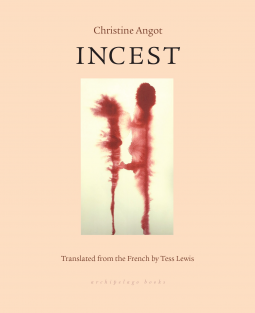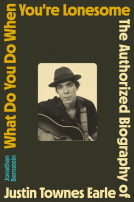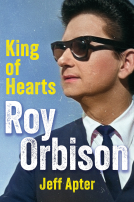
Incest
by Christine Angot
This title was previously available on NetGalley and is now archived.
Send NetGalley books directly to your Kindle or Kindle app
1
To read on a Kindle or Kindle app, please add kindle@netgalley.com as an approved email address to receive files in your Amazon account. Click here for step-by-step instructions.
2
Also find your Kindle email address within your Amazon account, and enter it here.
Pub Date Nov 07 2017 | Archive Date Sep 17 2017
Archipelago Books | Archipelago
Description
The narrator is falling out from a torrential relationship with another woman. Delirious with love and yearning, her thoughts grow increasingly cyclical and wild, until exposing the trauma lying behind her pain. With the intimacy offered by a confession, the narrator embarks on a psychoanalysis of herself, giving the reader entry into her tangled experiences with homosexuality, paranoia, and, at the core of it all, incest. In a masterful translation from the French by Tess Lewis, Christine Angot's Incest audaciously confronts its readers with one of our greatest taboos.
Advance Praise
“Incest is a thrilling book. It's a formally daring and passionate performance of the depths of human self-loathing, and the sufferings of attachment. It cut deep inside me with its truths. In every moment of reading it, I both wanted to keep reading it and wanted to write. I don’t think I will ever forget this book.” — Sheila Heti, author of How Should a Person Be?
"All said and done, Christine Angot is rock 'n' roll. Not what it became, but what it should never have ceased to be: raw, concise, radical, subversive.... Angot serves as a mirror, revealing to her readers all their paradoxes and contradictions." --Françoise-Marie Santucci, Libération
"It is clear that Christine Angot has won, because we are going to be thinking for a long time about this book. Because it will need a long study written about it in order to examine all of its hypotheses, its contradictions, understand the questions it puts forward, study its passion, disgust, insanity, the dream of controlled incest, the fantasy of incest fulfilled....What's at play in the work of Angot, in her force, her violence, is an idea of literature as a means of escaping from every collective, from all policing ... to think and write in one's singularity." --Josyane Savigneau, Le Monde
"Auto-fiction at its extreme does not aspire here to shock but to give literature back its dangerous function and return to it its dignity." --Gérard Meudal
Available Editions
| EDITION | Other Format |
| ISBN | 9780914671879 |
| PRICE | $16.00 (USD) |
| PAGES | 160 |
Average rating from 27 members
Featured Reviews
 Reviewer 268773
Reviewer 268773
Great read! Looking forward to reading more by this author! Highly recommend!
 Michael S, Reviewer
Michael S, Reviewer
"…A man’s sex penetrates radically. I like what’s radical. Other kinds of penetration are possible, borders, journeys…"
Angot begins finally at the three-quarter mark to describe the incest in meeting her father, whom she never previously knew, and then subsequently being charmed by him. Eight days in which she was afforded the chance to know him firsthand as a father, and then as a lover for a time, first with that kiss on the lips and then whatever else Angot chooses to eventually deliver on her page.
"…And I’m still a dog and I’m still looking for a master."
Isn’t all good writing some form of obsession, a supersaturation of some pressing demand on our heart and the meaning of our being? Lives riddled by mistakes and insufficient plans. Character studies among the worst of the worst. The insistence to finally get things right. To make of life something more interesting and palatable. Trying on names for things and different ideas. Seeing things in ways others are not susceptible to or aware of. Taking that one step out of line and suffering the consequences. No playing it safe on the sidelines. Decorum saved for our last days and attempts at amendments guaranteed to be forgotten within days of being deceased. A moving on regardless of past promises. Hollow effects falling on deaf ears. "There is no cover," Lish said. "Charge the fire. "
"…in Savoie there was a church in the village where all the houses had flagstone roofs, in this church the Stations of the Cross were particularly beautiful and the confessional witnessed my open mouth on my father’s penis, I had to finish him off in the car, he didn’t want to ejaculate in the confessional after all."
Angot claims she does not care what others think of her, or her writing. Her pen must be free of mediation that might control the outcome. She has no agenda, no vengeance on her page, just her freedom of expression. And damn those she says who want a story, or plot and romance without the pain of process it takes in getting to the end. And she claims she will, as desire is the vehicle in which to escape our despair. Angot goes on to say, "Tough luck." That is her exacting sentence, and there is no doubt it is she who is speaking.
"…Dogs are stupid, you can get them to suck on a plastic bone, and they’re stupid, dogs believe you."
Her needs are rarely met. Meanwhile she licks and sucks and fucks whomever needs it. And then creates entire books about the subject and her behavior. Angot is popular in France and widely read. She is controversial, at times sued, and in spite of it wins the occasional award judged for important writing. But she often feels despicable while unable to do anything about this feeling. Similar to the trap she is unable to escape from. And yet I do sympathize with her, still wanting her to indulge herself in every profane act imaginable. I want her dutifully soiled by her own making and then have the courage to write about it. It is Angot’s chosen way to redemption in her search for satisfaction on the page. It is her perpetual hunger unassuaged and a monster in the making.
 Matthew J, Reviewer
Matthew J, Reviewer
I heard about this book on 20 July 2017 and immediately requested an ARC. I received it about 30 minutes later and began reading on my lunch break.
It took me about 20% of the novel to decide whether Angot was brilliant or a hack. After a parenthetical conversation with her editor, I knew – she’s a genius. She reminds me of Henry Miller this way, how it can be a bit difficult to discern exactly where she’s going, or even where she is, at any given moment in the text. It takes a bit of reading to catch on the style of this particular novel (I’ve not read her before, so I can’t comment on her other works or even make a comparison), both structurally and content-wise, but once I realized what was happening, I couldn’t put the book down. I read it in three short sittings.
The novel breaks down into about 4 distinct sections [not marked as such in the text, so perhaps it’s better to say that the novel logically separated into 4 sections in my reading], and I’d like to make a few comments on each.
1st section – This portion of the book comprises about the first half of the text. The pace is frenetic and reminded me of listening to someone in the middle of a manic episode, or high on meth (don’t ask how I know), except every word was also beautiful. It was like the smartest person you’ve ever met trying to force out the solution to save humanity with their final breath – intense. Intense is the perfect word for the entire novel, most especially for the 1st and 4th sections (as I’m listing them here). Uncomfortable is another apt description, both for content and for concept. This half of the book is a cyclical narrative of a relationship continually ending but not ending but ending – it is thoughtful, compelling, painfully realistic thought patterns on full display. We’re nearly crazy at the end (of anything, really), complete with racing thoughts, jumbled ideas, paranoia, fear, anger, dismay, and confusion. Angot wonderfully captures the sense of an ending.
2nd section – Here we have a distinct and intentional change, explained to us by the narrator herself. The structure and flow change entirely, though not the overall tone. We’re still watching a woman fall apart, but in a much more clearly diagrammed way. There’s no more cycling, rather a deliberately paced narrative, broken only a few times.
3rd section – Section 3 is clearly unlike the rest of the novel, being a list of mostly (but not entirely) psychology and sociology terms, loosely defined through the narrator’s own understanding and story. It is part of her attempt to understand why she engages with her life in the peculiar way she does.
4th section – The fourth and final section of the novel continues in the vein of part 2, but with more interjecting of the narrative style of part 1. The narrator always calms herself down, however, restates her point, and continues on with a mostly calm and direct accounting of what’s going on. Finally, at about 75% of totality, the narrator directly addresses the title of the novel – incest. She mentions it a few times throughout, but now she tells her story. It’s tough reading. Shame palpable. Acknowledgement of the fact is where she wants to be, allowing it to override fear/shame/hatred/love. Between the brokenness of the the first half and the halting attempts to relate a story too taboo for words, this part of the novel is intense beyond understanding, much less words. You just have to read it.
A final note before I end my review of this amazing text…while perhaps not technically a stream of consciousness novel, Incest works better as one than most anything I’ve ever read. Ulysses is the original, but not as mature (heresy, I know); The Waves is the height, but there’s something more honest about Incest. Many try to write (or have tried) stream of consciousness, but this novel, stylistically, is near perfection.
I would recommend this novel to anyone, especially fans of modern/contemporary literary fiction or experimental fiction. Even from my review it’s easy to tell that the book isn’t for everyone, but I will unabashedly say that the novel is pure, uncompromising, punishing brilliance.
 Meghan Rose A, Reviewer
Meghan Rose A, Reviewer
<p>A twisty, repetitive, lost-in-her-own-thoughts maelstrom of a book. Basically, it can all be summed up with a quote straight from the book:</p>
<blockquote>
your writing is so unbelievable, intelligent, muddled, but always luminous, accessible, direct, physical. Your readers don’t understand a thing and they understand everything. It’s intimate, personal, shameless, autobiographical, and universal.
</blockquote>
<p>But it's harrowing subject matter -- the dissolution of a relationship takes up maybe the first three quarters of the book, then the last quarter details of Angot's (or a fictional version of Angot, it is purposefully unclear) incestuous relationship with her father, but all trapped in spiraling thoughts. I often get trapped in my own spiraling thoughts with no way out too. Yay for not feeling so alone, even if the subject matter isn't about me at all. Overthinking writers of the world -- unite!</p>
<p><A href="https://www.librarything.com/work/407796/book/145502061">Incest</a> by Christine Angot went on sale November 7, 2017.</p>
<p><small>I received a copy free from <a href="https://www.netgalley.com/">Netgalley</a> in exchange for an honest review.</small></p>










